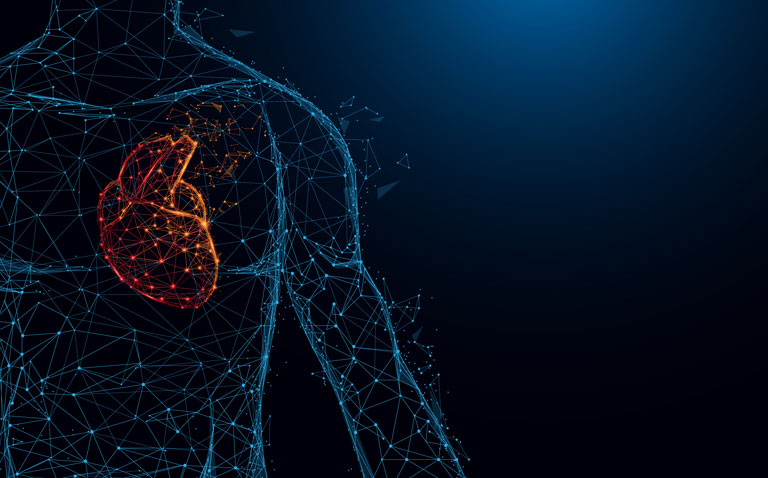The purpose of NG171 is to help health professionals who are not cardiology specialists to identify and treat acute myocardial injury and its associated complications in patients with either known or suspected COVID-19 and no prior cardiovascular disease.
Patient communication
NG171 emphasises the importance of communicating with patients, their families or carers to support their mental wellbeing during the COVID-19 pandemic and signposts them to the UK government guidance on mental health and wellbeing aspects of COVID-19. NG171 also signposts those with newly diagnosed myocardial injury to various relevant charities including the British Heart Foundation, Pumping Marvellous Foundation, Arrhythmia Alliance, Atrial Fibrillation Association and Cardiomyopathy UK, all of which have current and relevant patient information on COVID-19. NG171 recommends that health professionals should also provide patients, families and carers with information that meets their communication needs as described in NHS England’s’ Accessibility information standard.
Minimising patient and healthcare worker risks
Where patients are either known or suspected of having COVID-19, all healthcare staff involved in any aspects of patient contact, which includes receiving, assess and caring for patients are advised by NG171 to follow the UK government guidance on infection prevention and control. However, in cases where COVID-19 is diagnosed at a later stage and the patient was not initially isolated, NG171 advises staff to follow the government guidance on management of exposed healthcare workers in patients in hospital.
Diagnosis of acute myocardial injury in patients with suspected or confirmed COVID-19
NG171 alerts UK health professionals to the fact that evidence from Italy found that 9.5% of those dying with COVID-19 had acute myocardial injury or its complications. Moreover, these symptoms were similar to the respiratory complications of COVID-19 and could develop at any stage of infection.
NG171 defines potential acute myocardial injuries in those with COVID-19 which include:
• Acute coronary syndrome/arrhythmias/cardiac arrest
• Cardiogenic shock
• Cardiomyopathy
• Heart failure
• Myocarditis
• Pericarditis and pericardial effusion
NG171 defines the symptoms of acute myocardial injury in patients with COVID-19 which include:
- Chest pain
- Palpitation
- Severe fatigue
- Shortness of breath
Diagnostic tests
Health professionals are advised by NG171 that in patients who display and signs or symptoms of acute myocardial injury, it is important to measure high sensitivity troponin I (hs-cTnl) or T (hs-cTnT) or NT-proBNP and to perform an EGC.
These tests can help inform a diagnosis, in particular:
- Evolving ECG changes suggesting myocardial ischaemia
- NT-proBNP levels above 400ng/L
- High levels of high sensitive troponin (either hs-cTnl or cTnT), especially where levels increase over time.
NG171 also advises that clinicians need to be aware that elevated troponin levels may actually reflect a cardiac inflammatory response to severe illness rather than acute coronary syndrome and that all information should be viewed within the clinical context of the patient.
Managing myocardial injury in those with suspected or known COVID-19 infection
It is advised in NG171 that all patients with a suspected or confirmed acute myocardial injury should be monitored in a setting that allows for any cardiac and respiratory deterioration to be rapidly identified. In addition, continuous ECG monitoring should be undertaken as well as regular blood pressure, heart rate and fluid balance checks.
NG171 recommends that where there is a clear diagnosis of myocardial injury, health professionals obtain specialist cardiology advice on treatment, any further relevant tests or imaging and to follow local treatment protocols.
In cases where there is a high suspicion of myocardial injury but no clear diagnosis, NG171 advises health professionals to repeat high sensitivity troponin and daily ECGs which may help to establish a clear diagnosis. NG171 suggests that staff seek specialist cardiology advice on the need for any further investigations to assist in the diagnosis such as transthoracic echocardiography.
NG171 also notes how drugs such as azithromycin and hydroxychloroquine, which have been used in some cases to treat COVID-19, can prolong the QTc interval.
NG171 stresses the importance of keeping patients, the families and carers fully involved and to discuss all of the possible risks and benefits from the different treatment options to enable them to make an informed decision about any treatment.
If patients require critical care, NG171 suggests that clinicians have a clear treatment plan in place which addresses how the proposed treatment will lead to agreed outcomes and whether the plan and the outcomes are clinically realistic. Guidance on such decision-making is available from the British Medical Association and the Royal College of Physicians.
Finally, NG171 suggests that clinicians stop critical care treatment in cases where it becomes apparent that the desired outcomes are no longer achievable. Any such decisions should be fully recorded and discussed with the patient, family or carers.
NG171 is available online and interested readers should check this version for further updates.










